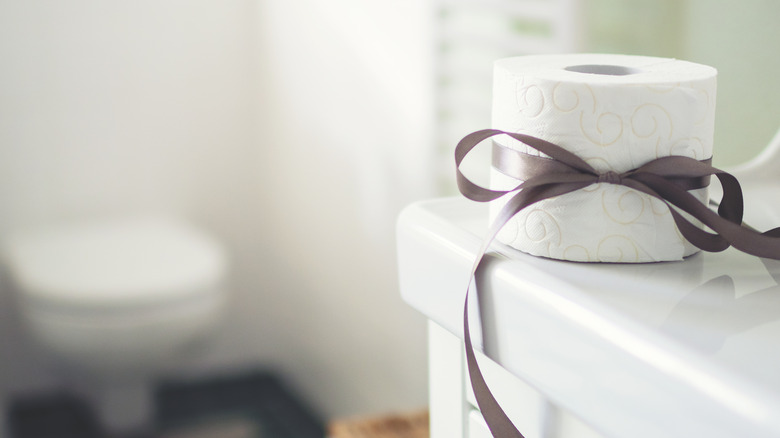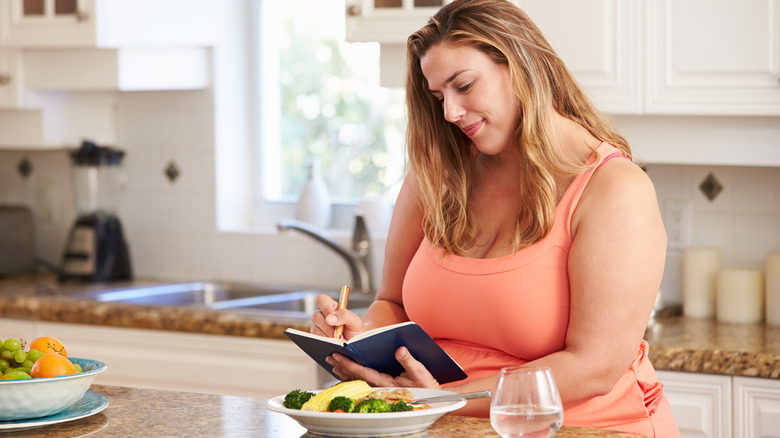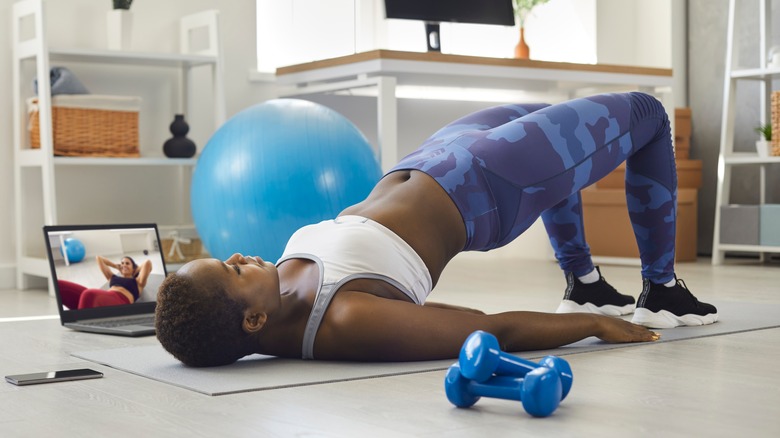Can You Train Your Body To Poop On Demand?
Poop happens — or at least it should — pretty regularly. Sometimes you have to go at the most inopportune times, like just before a job interview. Being anxious can cause nervous poops — as if you need more stress in your situation. Other times when you need to go, you can't. Constipation can occur from simple lifestyle factors, like a lack of water or fiber in your diet, an inconsistent routine, or eating too much cheese. Stress can also cause constipation.
For some people, constipation or a little incontinence can be problematic. According to MedlinePlus, neurological issues, emotional problems, and laxative overuse are just some of the reasons why people might need to train their bodies to have regular bowel movements. While you can't just snap your fingers to poop on demand, bowel retraining involves a holistic approach that fosters good bowel habits to ease constipation or incontinence. You'll establish a routine to have you poop around the same time every day.
How bowel retraining works to help you poop
If constipation or uncontrollable bowel movements interfere with your quality of life, a gastroenterologist or other specialist in GI disorders can guide you through the retraining process. First, you'll give your medical history, including any medication or dietary factors that might contribute to your issue. You might also be asked to keep a diary of your food intake and your bowel movements to better understand your condition.
The retraining process involves establishing stool consistency by incorporating foods that are high in dietary fiber. You'll also need to increase your fluids so that the fiber can do its job of adding bulk to your stool and emptying your colon. You'll also designate a convenient and consistent time each day to have a bowel movement. This should be a time of day when you're relaxed and not likely to be rushed. A GI specialist will also recommend the best way to stimulate your bowels at the designated time. This might include a hot beverage or a physical stimulus in your rectum such as a suppository (per About Constipation).
Keeping your bowels healthy
You can avoid constipation or future incontinence by practicing good bowel habits. The Australian Government's Department of Health and Aged Care suggests drinking plenty of water and exercising regularly. Quitting smoking, eating foods high in fiber, and maintaining a healthy weight will also keep your bladder and bowels healthy now and as you age.
You'll also need to strengthen the muscles of your pelvic floor. Your pelvic floor can get weaker with age, but being overweight, having a child, or remaining sedentary can also weaken the muscles that control your urinary and bowel habits. Practice pelvic floor exercises several times a day by squeezing the muscles you'd engage if you were trying to stop peeing or breaking wind. The National Health Service says to avoid practicing pelvic floor exercises while you're trying to pee because it can stress your bladder.
Your bowel is healthy if you poop at least three times a week or as often as three times a day. Your poop should also have a solid form that comes out without straining. A healthy bowel also means you know when it's your time to poo and can hold it long enough to reach the toilet.



